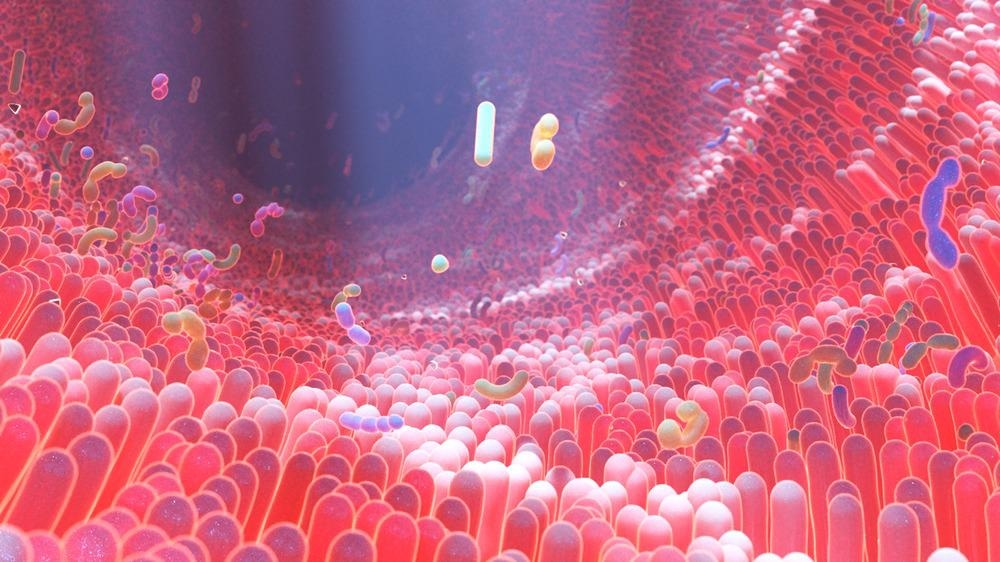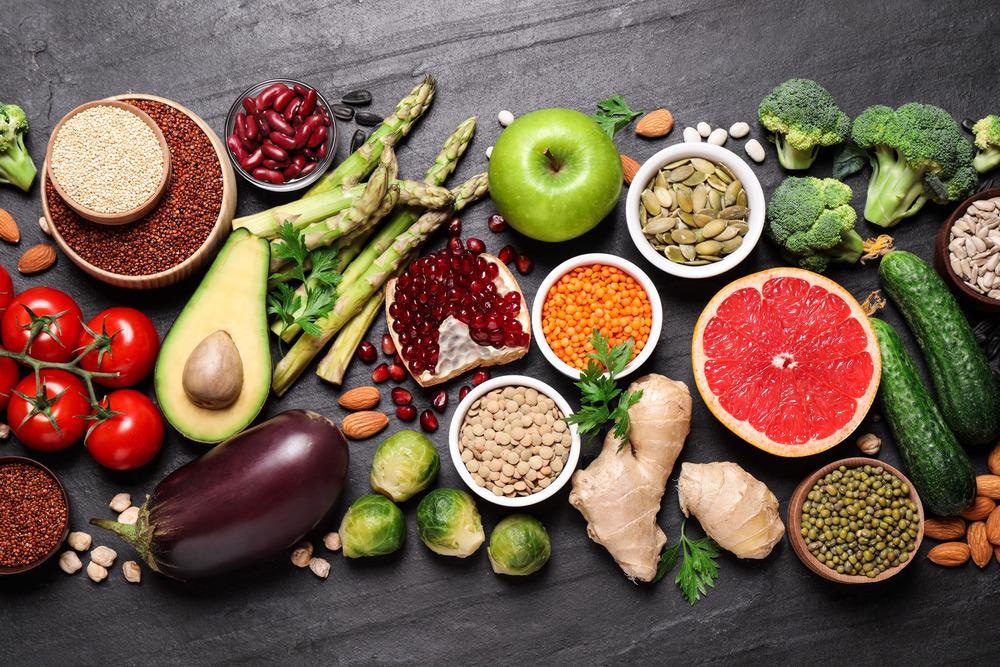The human gastrointestinal (GI) tract is estimated to house 100 trillion microorganisms, encoding some 3 million genes; producing thousands of metabolites. The genetic information within these organisms, or the microbiome, can significantly impact the host's health. But, to what extent can diet influence the microbiome?

Image Credit: Alpha Tauri 3D Graphics/Shutterstock.com
The role of gut microbes in human health and disease has been the focus of much research in the past decade. The forces influencing the structure and composition of the gut microbe communities, or microbiota, have been of particular interest. Several factors, including dietary habits, can influence this complex ecosystem.
Sequencing the genome of microbiota and documenting the diversity of different communities in relation to the host diet provides detail on the role of microbes in the gut. Utilizing a database of KEGG orthologs and operational taxonomic units (OTU), it is possible to define the communities of gut microbes with particular molecular functions.
The Gut Microbiota of a Herbivore vs. a Carnivore
The structure and function of the microbial ecosystem can be influenced by diet content and quantity. When comparing the microbiome of a carnivore and herbivore, a clear distinction lies in amino acid metabolism. Adapting to their host diet, microbiota are thought to provide enzymes to aid the chemical breakdown of diet-derived substrates. Perhaps unsurprisingly, the degradative pathways of 9 amino acids have been enriched in carnivores.
On the opposite end of the spectrum, Lachnospiraceae are seen to be negatively correlated with protein intake. This family of core human gut microbiota colonizes from birth, fluctuating in terms of species diversity and abundance during the host's life. The relative abundance of Lachnospiraceae in the microbiota has also been positively associated with vegetable intake.
Gut Microbes Communicate with G-protein-coupled receptors (GPCRs)
Fermentation of diet-derived fiber by members of the Lachnospiraceae family produces short-chain fatty acids (SCFA) that can communicate with the host. These SCFAs can influence processes such as nutrient uptake and metabolism, as well as pathogen propagation and host immunity. Comprising 58 genera, as well as several unclassified strains, members of the Lachnospiraceae family co-metabolize dietary components with the host to produce various beneficial metabolites and signaling molecules.
Acetate, propionate, and butyrate are amongst the main SCFAs produced by the gut microbiota. Acting as signaling molecules, these metabolites bind GPCRs. When expressed in the pancreatic β-cells, SCFA activation of receptors GPR43/FFA2 and GPR41/FFA3 has been associated with cell proliferation, survival, and function.
SCFA levels in the gut of diabetic individuals
The production of propionate and acetate in microbiota has been associated with differential modulation of insulin secretion. Activating FFA2 by propionate and acetate can activate G protein α subunits, pertussis toxin (PTX)-sensitive Gαi, or PTX-insensitive Gαq. Gαi activation leads to changes in intracellular cAMP levels, resulting in decreased insulin secretion. On the other hand, activation of Gαq activates PLC to hydrolyze PIP2 to DAG and IP3, with consequent activation of protein kinase C (PKC) and release of Ca2+ (respectively) amplifying insulin release.
Several disease states have identified deficiencies in the host-microbe co-production of SCFAs in the gut. In individuals with type 1 diabetes (T1D), the gut microbiota undergoes a shift. The altered microbiota produces a decreased level of butyrate, thought to be involved in increased intestinal permeability. In cases of T1D and pre-diabetes, clinic onset is seen to succeed in heightened gut permeability.
Microbiotic diversity and health
Shifts in microbiota can alter the production of metabolites by changing the composition and structure of the ecosystems within it. Altering the diversity of microbiota is seen to influence the host's health. Lower diversity is associated with various conditions, including obesity and metabolic disorders.
Long-term dietary patterns are able to influence the composition and function of gut microbiota. The microbiota profile of individuals with vegan and vegetarian diets is shown to have a greater profusion of beneficial bacteria than omnivores. Interestingly, the microbiome of those with vegan and vegetarian diets is also significantly associated with lower occurrence and abundance of antimicrobial resistance genes than omnivores.

Image Credit: New Africa/Shutterstock.com
The influence of diet and culture
Gut microbiota can be influenced by diet, culture, and genetics. The gut microbiota of individuals from non-western communities, where natural fiber and starch intake is higher, is often dominated by Prevotella. In inflammatory arthritis and multiple sclerosis cases, Prevotella was found to provide effective anti-inflammatory influences. For those from western society, Bacteroides ten to dominate gut microbiota. This microbe species has been associated with providing antimicrobial resistance to variant antibiotics.
Gut microbial ecosystems play a vital role in the production of various signaling molecules. The structure and composition of microbiota in the gut directly influences their function, with environmental factors often altering the communities in terms of bacterial species' type, number, and consistency. The shift in microbiota resulting from long-term dietary changes can alter the metabolites produced. The degree to which these metabolites contribute to human health is the topic of ongoing research.
Sources:
- Palmas, V., et al. (2021) Gut microbiota markers associated with obesity and overweight in Italian adults. Sci Rep. doi.org/10.1038/s41598-021-84928-w
- Vacca, M., et al. (2020) The Controversial Role of Human Gut Lachnospiraceae. Microorganisms. doi:10.3390/microorganisms8040573
- Patterson, E., et al. (2016) Gut microbiota, obesity and diabetes. Postgraduate Medical Journal, 92, pp. 286-300.
- Liu, J.L., et al. (2020) Controversial Roles of Gut Microbiota-Derived Short-Chain Fatty Acids (SCFAs) on Pancreatic β-Cell Growth and Insulin Secretion. Int J Mol Sci. doi:10.3390/ijms21030910
- Matsumoto, N., et al. (2021) Relationship between Nutrient Intake and Human Gut Microbiota in Monozygotic Twins. Medicina (Kaunas). doi:10.3390/medicina57030275
- Sakkas, H., et al. (2020) Nutritional Status and the Influence of the Vegan Diet on the Gut Microbiota and Human Health. Medicina (Kaunas). doi:10.3390/medicina56020088
- Valdes, A.M., et al. (2018) Role of the gut microbiota in nutrition and health. BMJ. doi:10.1136/bmj.k2179
- Brody, H. (2020) The gut microbiome. Nature. https://doi.org/10.1038/d41586-020-00194-2
Further Reading